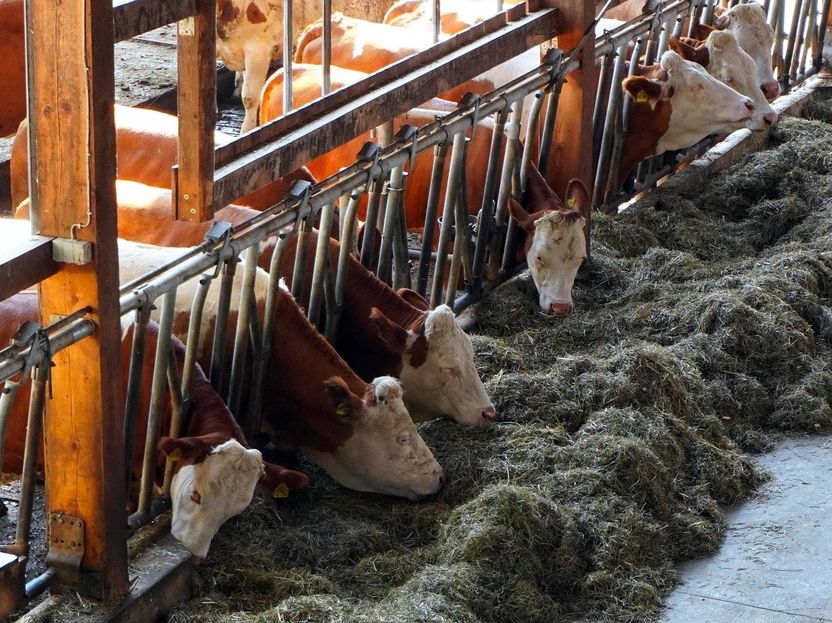Intermittent fasting, low carb or vegan for diabetes
What does science say?
Advertisement
What is the right diet for diabetes? To mark World Food Day on October 16, researchers from the German diabetes Center (DDZ) have taken a closer look at the scientific facts on dietary trends such as intermittent fasting, low-carb diets and vegan diets. They explain which diets can help to improve blood sugar and weight - and where the opportunities and risks lie.
A balanced diet has a direct influence on blood glucose levels, insulin sensitivity and blood lipid levels. It makes a decisive contribution to preventing secondary diseases such as cardiovascular or kidney disease. This is why it has long been considered a central pillar in the treatment and prevention of type 2 diabetes.
"Precisely because diet is so important, it is worthwhile not to blindly follow dietary trends, but to take a close look at the various approaches - based on scientific data," explains Dr. Sabrina Schlesinger, Deputy Director of the Institute of Biometry and Epidemiology at the DDZ.
Intermittent fasting - what studies show about its benefits and limitations
Intermittent fasting involves restricting food intake to certain time windows, for example according to the 16:8 principle: 16 hours of fasting, eight hours of eating. Other variants include alternate-day fasting, which alternates between a fasting day and a normal day, or the 5:2 diet, in which calories are reduced to a maximum of 500 to 600 calories on two days per week.
Studies show that intermittent fasting in type 2 diabetes can improve insulin sensitivity, reduce weight and partially lower long-term blood glucose (HbA1c). A recently published study compared different forms of fasting with continuous calorie restriction. The results show that alternate-day fasting is slightly more effective at reducing weight in the short term than continuous calorie restriction. In the long term, however, it neither leads to greater weight loss nor does it provide better protection against cardiovascular or metabolic diseases. "Any extreme diet or dietary change can be risky. For example, intermittent fasting can lead to hypoglycaemia in people with diabetes who inject insulin or take certain blood sugar-lowering medications. For this reason, all diets are only recommended with medical supervision, especially for people with diabetes," emphasizes Prof. Michael Roden, Scientific Managing Director and Spokesman of the Board of the DDZ and Director of the Clinic for Endocrinology and Diabetology at Düsseldorf University Hospital.
Low carb: less carbohydrates, more fats and protein
In a low-carb diet, carbohydrates are significantly reduced - from moderate to very strict. Fewer carbohydrates mean lower blood sugar and insulin spikes, and the body then uses more fat and ketone bodies as an energy source.
DDZ research shows: A low-carbohydrate diet can improve weight and blood sugar control in type 2 diabetes and have a beneficial effect on blood lipid levels. In the long term, however, the advantages over other diets such as calorie-restricted diets are equalized. In the case of type 1 diabetes, the study situation is much more limited and close consultation with doctors is necessary, as the risk of hypoglycaemia or life-threatening metabolic imbalances (ketoacidosis) increases.
Important: Anyone trying low carb should keep an eye on the quality of the food. A high proportion of animal fats and proteins can increase the risk of cardiovascular disease. A diet that is very low in carbohydrates is not recommended for people with diabetes or kidney disease.
Eating vegan only makes sense with careful planning
When implemented correctly, a vegan diet includes a lot of high-fibre foods with many secondary plant substances that have a positive effect on the metabolism. In people with type 2 diabetes, a vegan diet can reduce body weight, improve blood sugar control and also have a positive effect on blood pressure and blood lipids. However, studies on long-term effects or on type 1 diabetes are still lacking.
However, a vegan diet requires careful nutrient planning: "Vitamin B12 must be supplemented; there is also an increased risk of deficiencies in iodine, iron, vitamin D, omega-3 fatty acids and calcium," explains Dr. Janett Barbaresko, scientist at the Institute of Biometry and Epidemiology at the DDZ. She played a leading role in the position paper on the reassessment of vegan diets by the German Nutrition Society (DGE). "If you don't want to give up animal products completely, you can achieve similar benefits with a healthy, plant-based diet," adds Barbaresko. Plant-based foods such as vegetables, fruit, wholegrain products, pulses and nuts are the focus here. A recent observational study by the DDZ shows that this is associated with a lower mortality rate in type 2 diabetes (press release).
Conclusion: No one-size-fits-all solution - individual adaptation counts
Each of the diets mentioned can therefore offer advantages - the decisive factor is whether they can be integrated into everyday life in the long term and are coordinated with medication and accompanying illnesses. "With strict diets, there is a risk that they will be abandoned quickly. It is more important to stick to changes in the long term and set realistic goals," emphasizes Schlesinger.
Note: This article has been translated using a computer system without human intervention. LUMITOS offers these automatic translations to present a wider range of current news. Since this article has been translated with automatic translation, it is possible that it contains errors in vocabulary, syntax or grammar. The original article in German can be found here.



































































